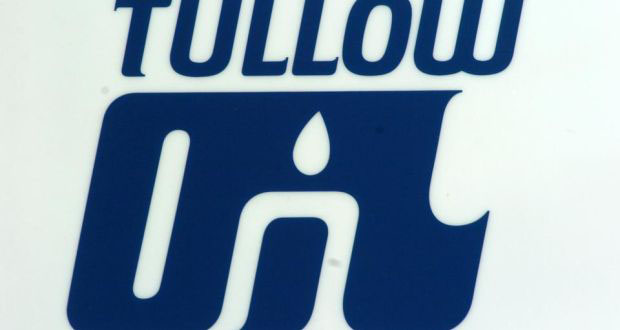While the local response to this week’s disclosure that the British company Tullow Oil is now in the process of reassessing the commercial viability of its recent oil discoveries offshore Guyana has been relatively muted, not so that of the wider international community including those constituencies with vested interests in the well-being of the company.
A short while after the disclosure earlier this week that crude from the two wells sunk by the company was found to be “heavy with a high sulfur content,” global oil reporting media were reporting that the company is now reassessing the commercial viability of discoveries in Guyana. In the wake of the announcement to the media here in Georgetown in Tuesday, Tullow Oil’s stocks reportedly plummeted “the most in two decades” in London trading.
With the announcement by ExxonMobil some weeks ago that it will now be delivering ‘first oil’ next month rather than in March next year as previously announced the public mood appeared to have taken an upbeat turn against the backdrop of the political tension that had derived from the fallout from last year’s no confidence motion in the National Assembly. Two successive oil find disclosures by Tullow a few months ago had been noted by Guyanese though it did little more than augment the already high national expectations arising out of the pursuits of ExxonMobil. So that while the very recent disappointing news from Tullow Oil must have had a sobering effect on a nation already decidedly tuned to the promised economic benefits to be derived from becoming an oil-producing nation, the announcement has by no means ‘killed the dream.’
For Tullow, itself, however, the implications of the news were more impactful. After the announcement its stock sank “as much as 23%, hardly good news for its shareholders, since, according to international oil and gas sources, the company’s earlier announcement regarding a likely significant oil find in Guyana had “countered concerns over troubled ventures elsewhere.” Tullow has already announced that the recent disappointing discovery means that it expects its investors to “worry” about the value of its projects here. Heavier oil carries a far higher production price and requires more energy to extract and transport to refining locations.
Having twice struck oil offshore Guyana this year, Tullow had reportedly begun to breathe easier as it sought to ease concerns over its pursuits in Africa where “technical difficulties” had reportedly set back its operations in Ghana while projects in Uganda and Kenya had been stricken by delays.
While reports make it clear that the recent development is bad news for Tullow’s Guyana’s operations, the company does not appear, up to this time, to have slammed the door on its oil discovery hopes here. “The commerciality of both discoveries is still being assessed and our options are being reviewed,” a Tullow spokesman George Cazenove was quoted as saying two days ago. Cazenove was further quoted as saying that “the quality of the reservoir and the significant over-pressure are positive, and while oil of this type is sold in global markets, we need to do more work on the various parameters.”
